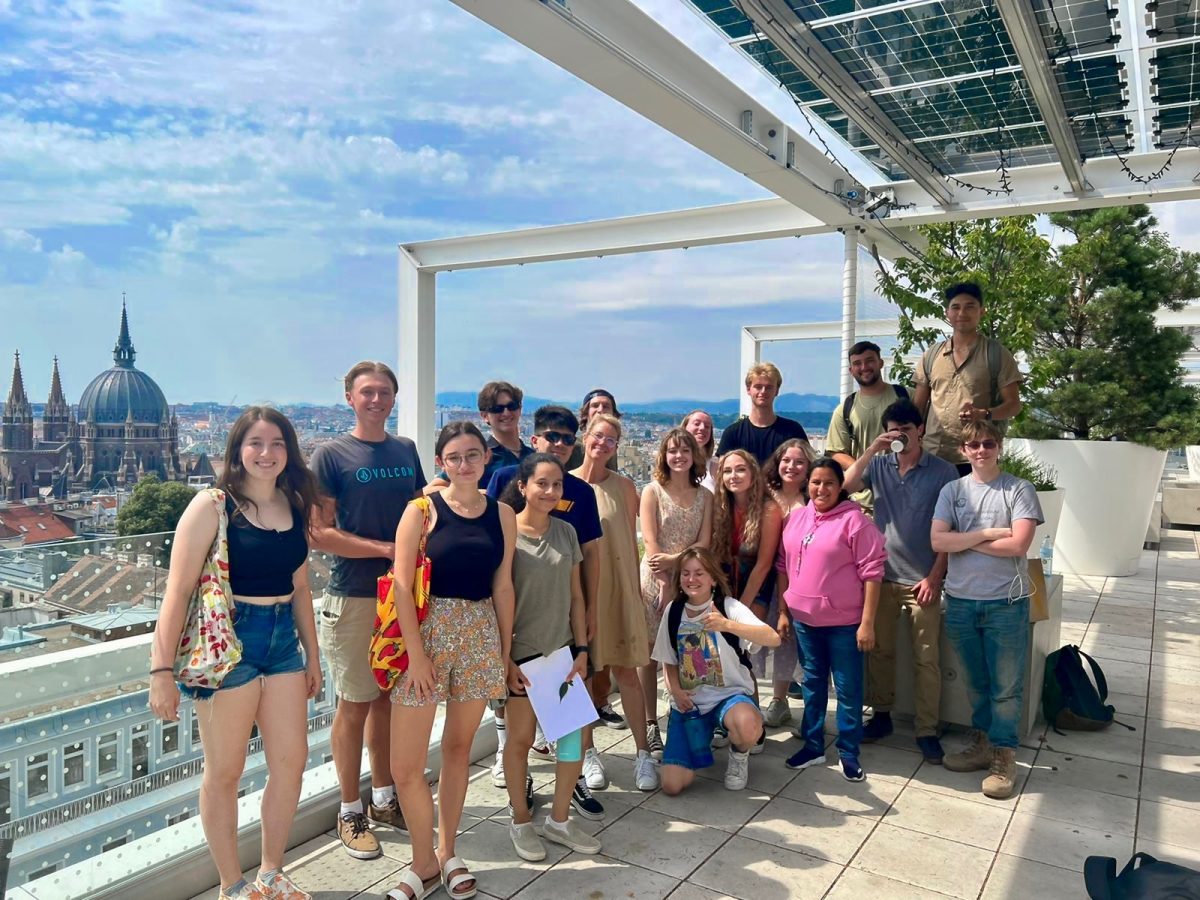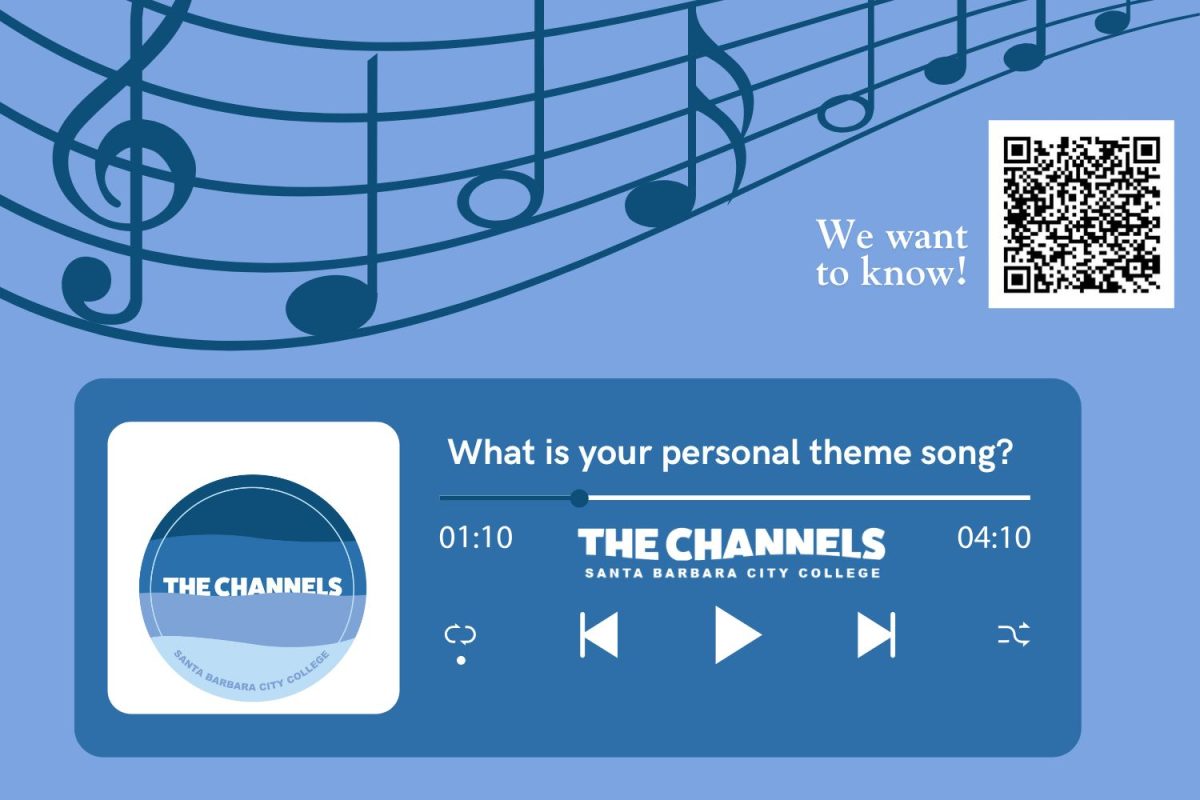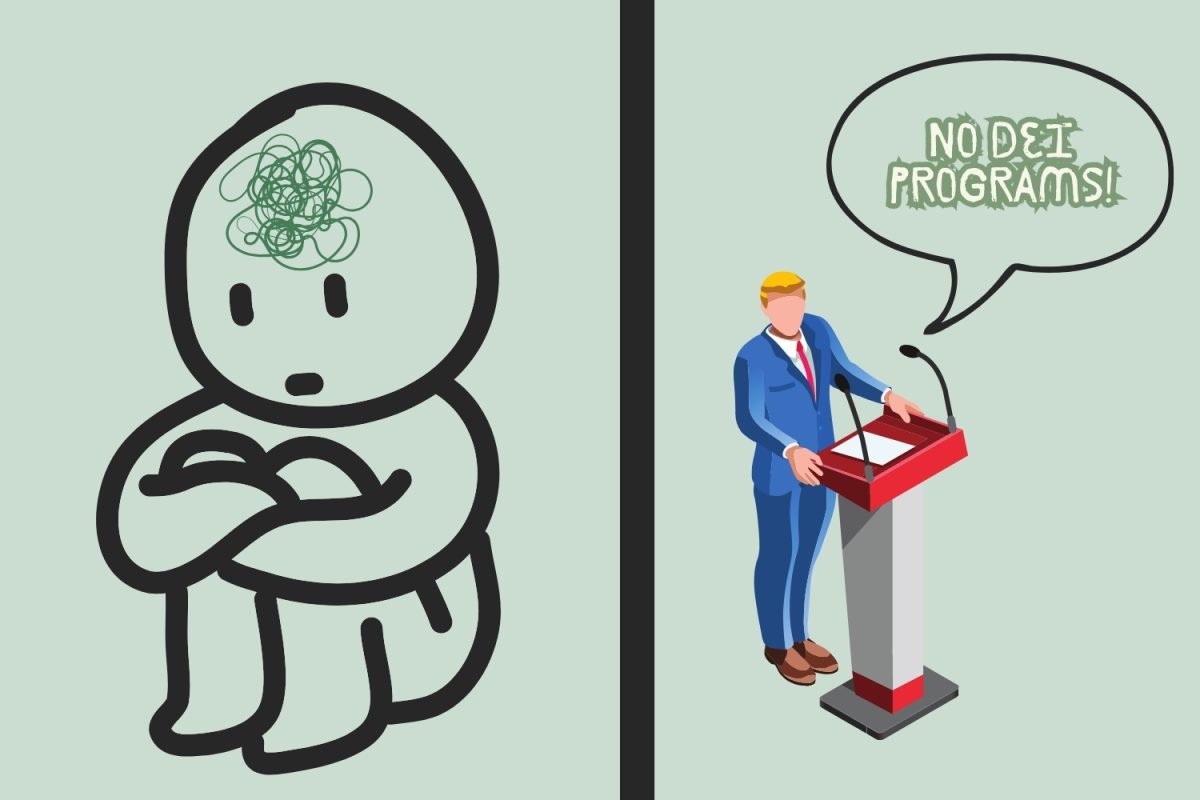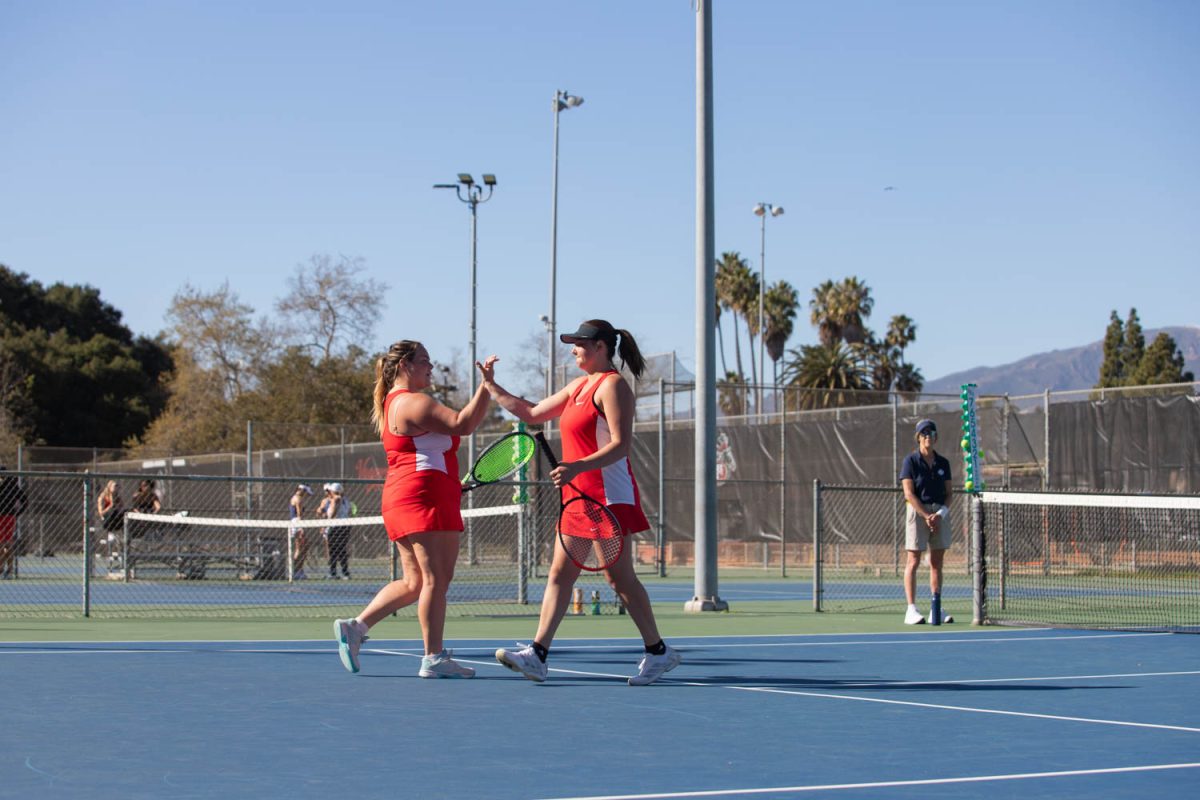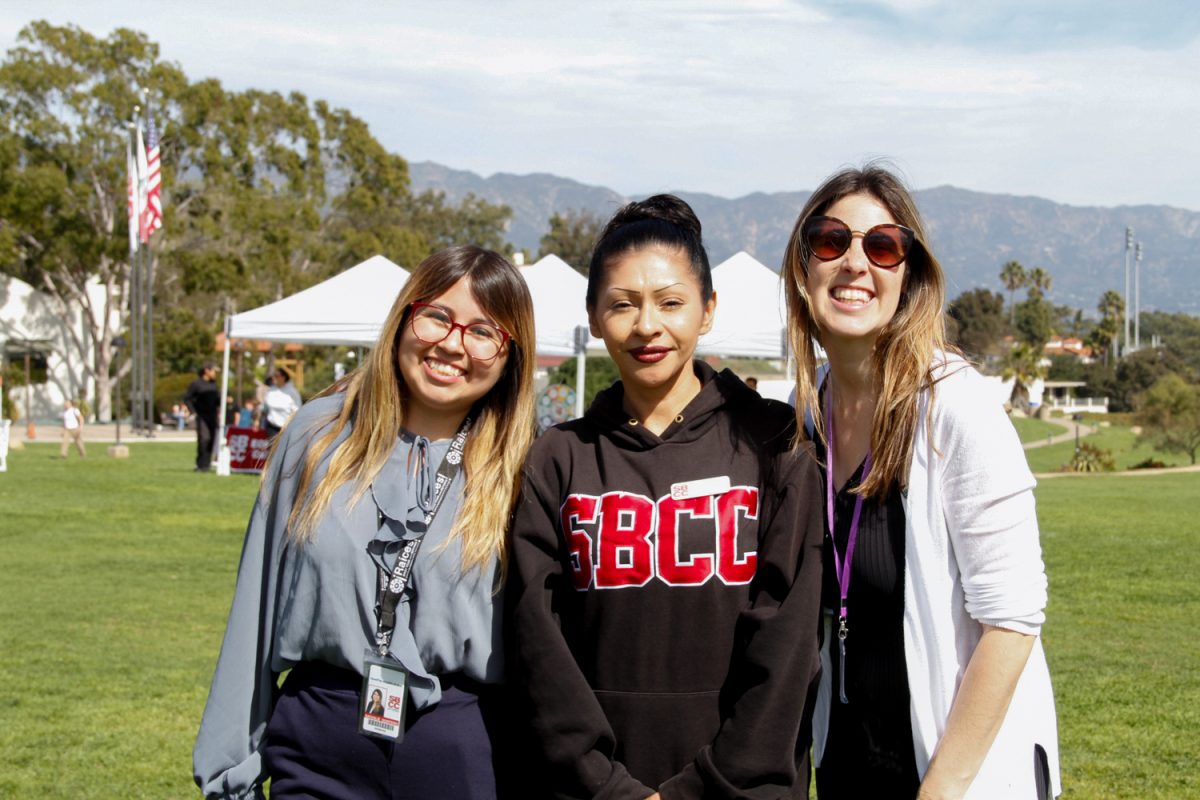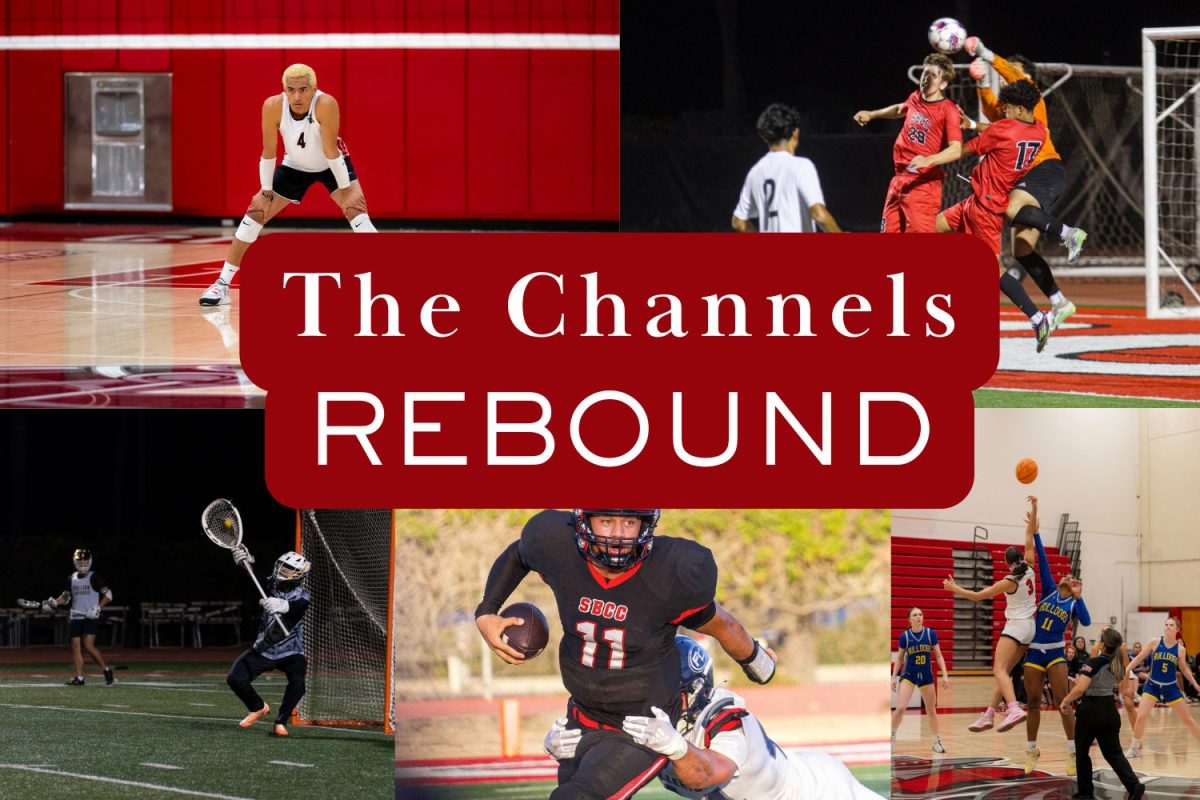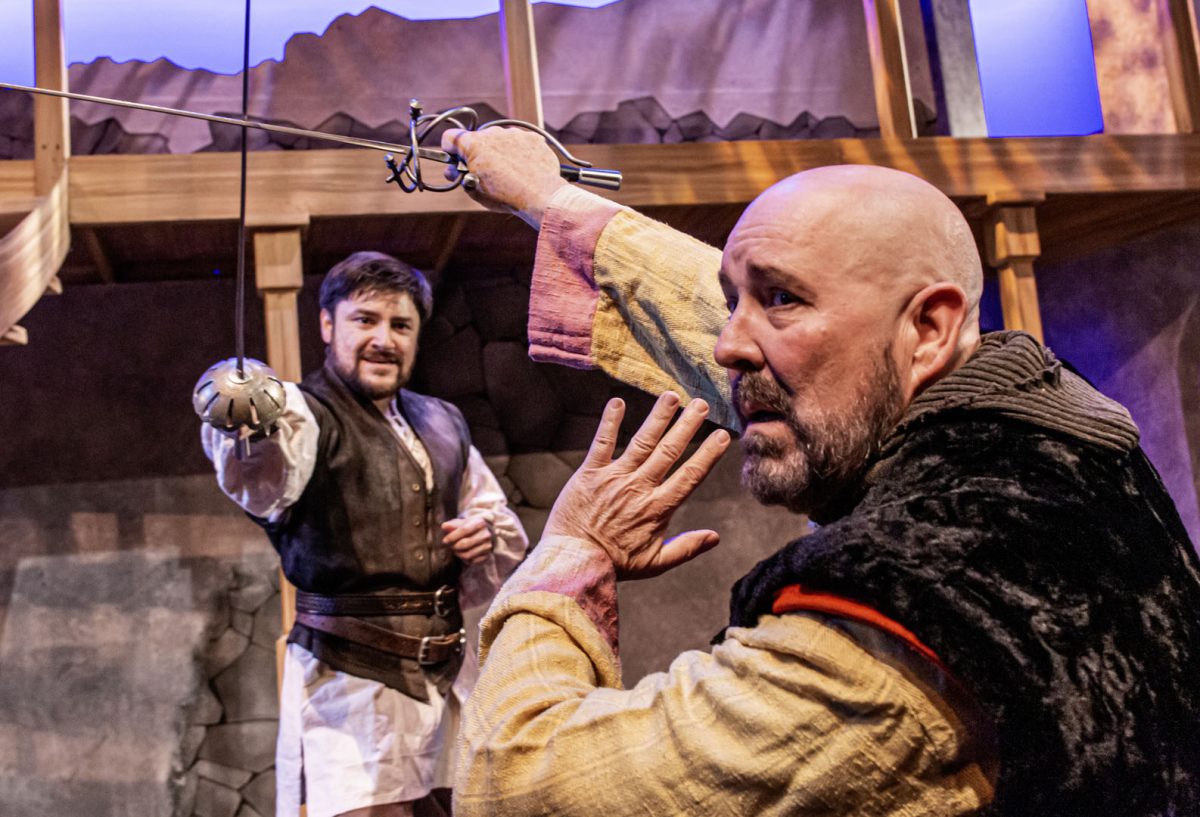As nearly 100 students enter Room 101 in the Physical Sciences Building, Interim Executive Vice President of Educational Programs Kathy Scott assists Anthropology Professor Tara Carter check her students’ wristbands to ensure they have filled out the Cleared4 survey and are cleared for class.
As Carter returned to teaching on campus, she said she was worried she wouldn’t be able to check all of her students’ wristbands due to her large class sizes. She mentioned this concern to Scott which then led her to support Carter in her classroom.
“She’s able to kind of figure out what it is somebody needs for a project and she delivers on it,” Carter said. “She will actually find a way to make it happen for you.”
Scott took on the position four days after she retired from her role as the executive vice president of academic affairs at Long Beach City College.
“I’ve been in the community college system for 30 years, so a lot of it’s some ideas from other colleges,” Scott said. “It helps to have someone come in with fresh eyes and look at things differently.”
When she started in the fall of 2021, she dealt with COVID-19-related issues such as vaccine requirements for anyone returning to campus, additional professional training and support for faculty to help them become more experienced in teaching online.
Once the administration came back to campus, Scott rewarded them with an extra $40 income for the time and effort they were putting in when making the transition to teaching back in person.
“I think that really was the start, or at least showing, that the administration is not just taken for granted, but appreciated,” Faculty Association President, Cornelia Alsheimer-Barthel said. “This was one of the things which I remember her arrival made a difference.”
Alsheimer-Barthel went on to discuss that when having divergent opinions in negotiations, “there’s a level of trust and respect from the administration to the union and vice versa and there’s willingness to openly discuss what’s needed.”
“Dr. Scott fit right in,” she said. “It did not take a year of trust building, or a year of her catching up on how we negotiate here or fitting into the team.”
The interim executive vice president was able to collaborate with teams from Student Services and the Faculty Association over the past year. Together, they were able to help create pathways for veterans and incarcerated students by providing credit for prior learning and correspondence education.
“There’s been a lot of pushback from previous EVPs for how to do that [offering correspondence courses for incarcerated students],” Carter said. “She’s just like, ‘no, we’re gonna do it.’”
Moving forward, the position of executive vice president will be divided between two vice presidents. The vice president of academic affairs and vice president of student services.
Since Scott took on both positions, she said she was able to work with faculty and staff in the hopes of creating a better experience for students in classes both online and in person. She also mentioned assisting students in getting through the enrollment process and reaching out to the community to help support them to become successful.
“I think it was just trying to get several things going that would have a long-term impact on the institution and our students,” Scott said.


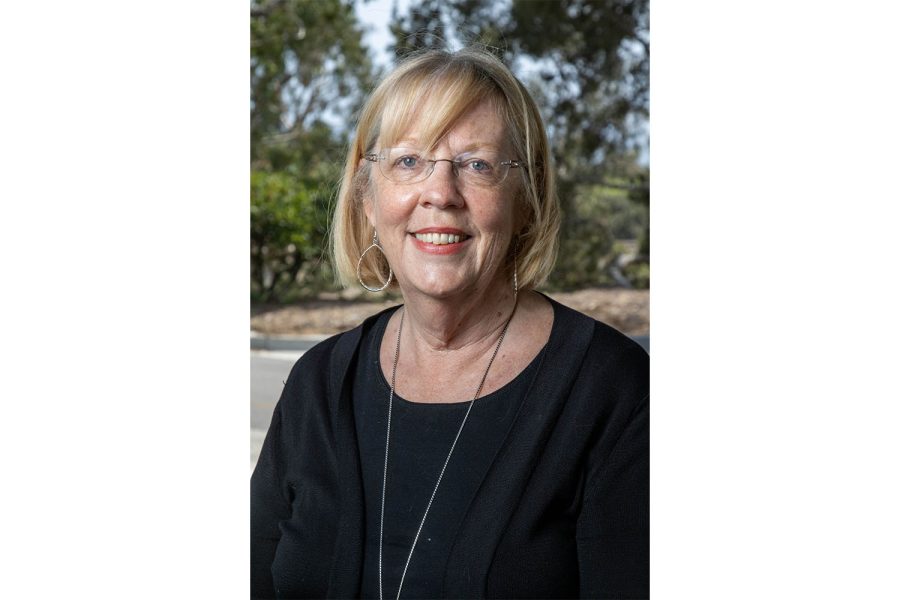
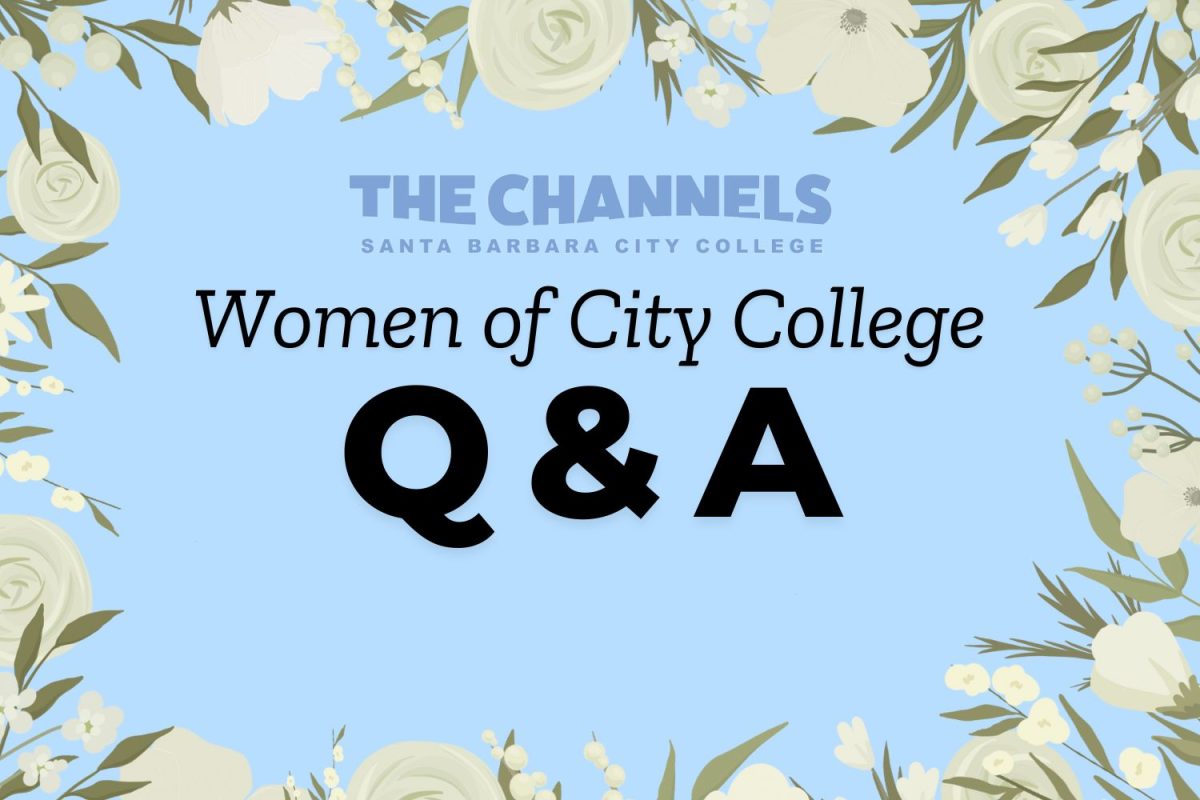
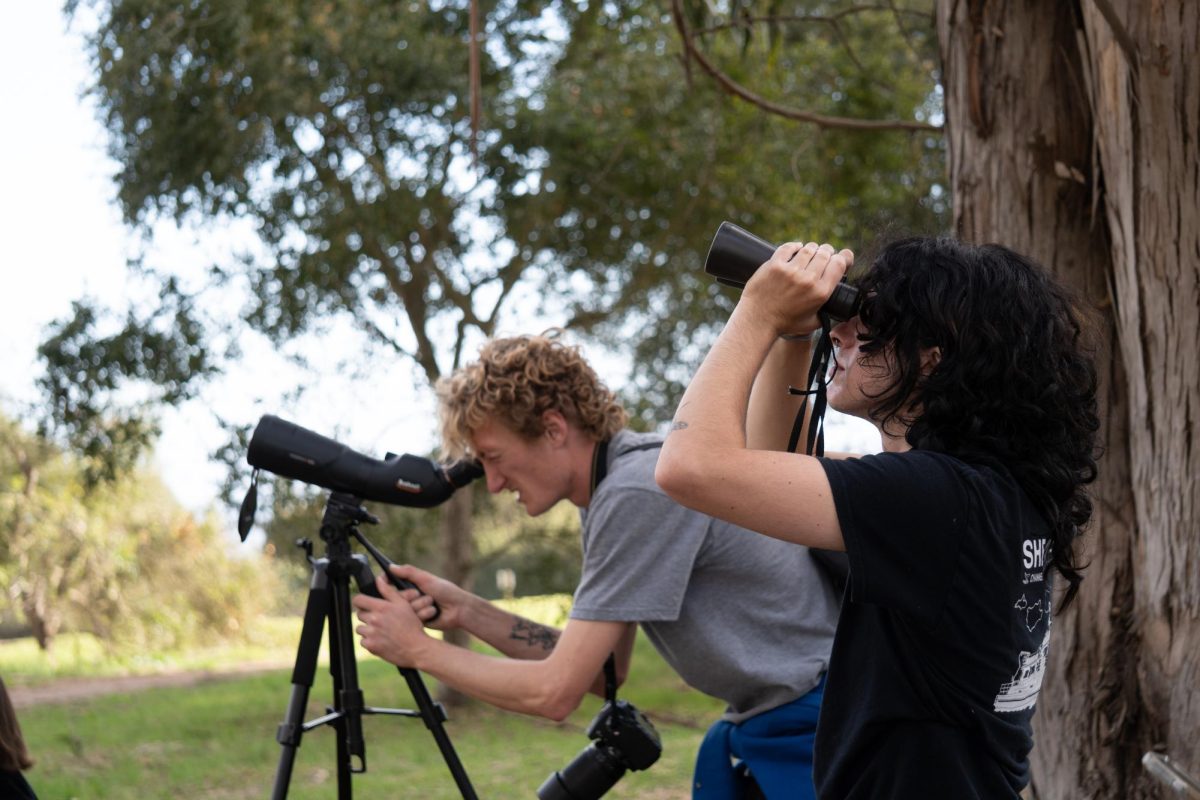
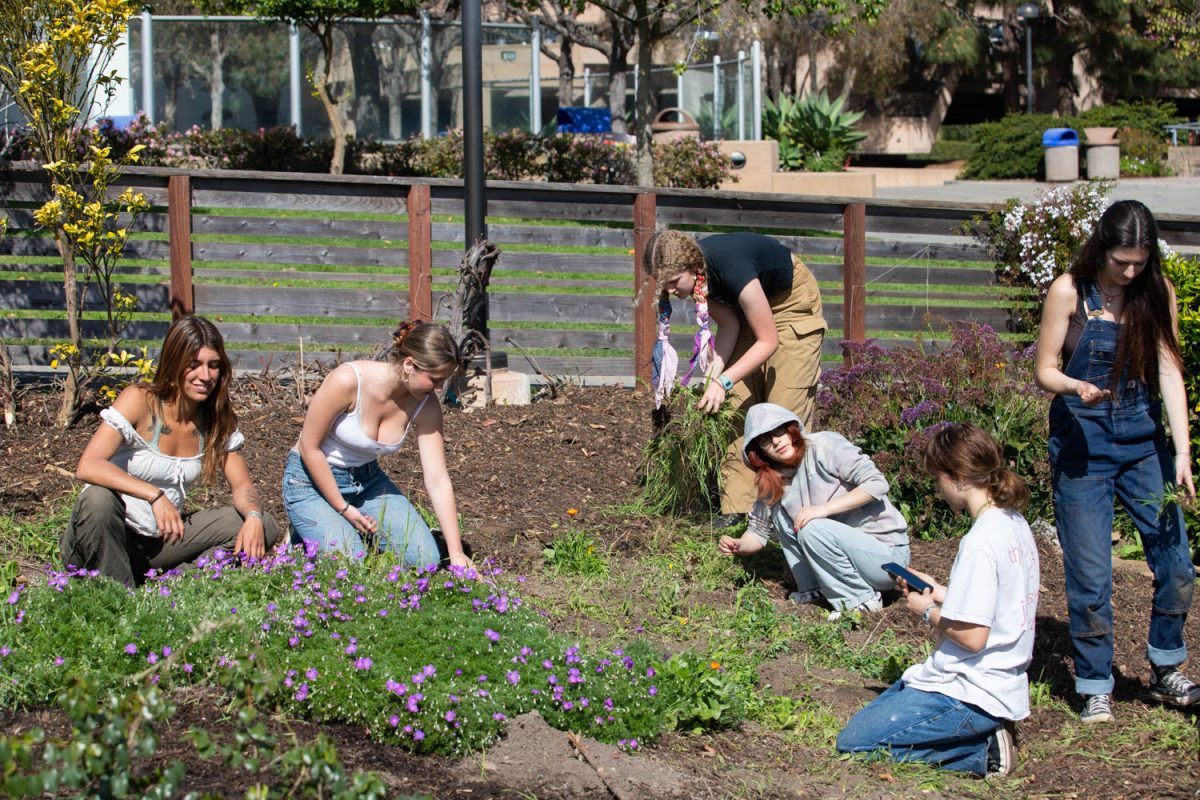
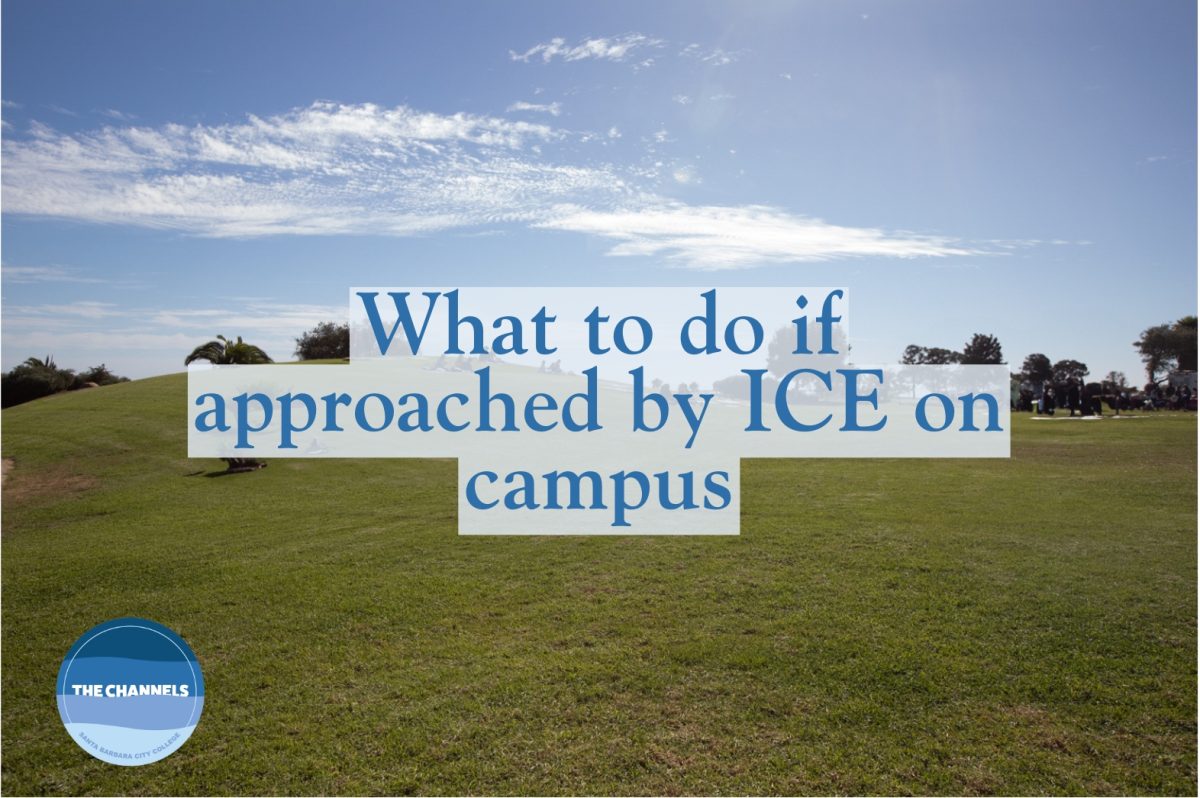
![On Feb. 12 the Multimodal Lab held a poetry open mic for students, staff and faculty in Santa Barbara, Calif. “I'm glad there is space here at this school [...] that people can talk about what they are feeling on the inside and whatever feelings they’ve got,” Russom said.](https://www.thechannels.org/wp-content/uploads/2025/02/MGSMultimodal-3-1-1200x800.jpg)
